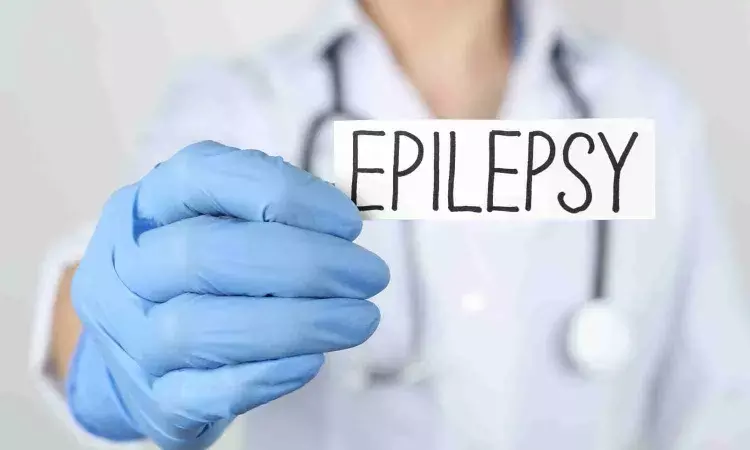- Home
- Medical news & Guidelines
- Anesthesiology
- Cardiology and CTVS
- Critical Care
- Dentistry
- Dermatology
- Diabetes and Endocrinology
- ENT
- Gastroenterology
- Medicine
- Nephrology
- Neurology
- Obstretics-Gynaecology
- Oncology
- Ophthalmology
- Orthopaedics
- Pediatrics-Neonatology
- Psychiatry
- Pulmonology
- Radiology
- Surgery
- Urology
- Laboratory Medicine
- Diet
- Nursing
- Paramedical
- Physiotherapy
- Health news
- Fact Check
- Bone Health Fact Check
- Brain Health Fact Check
- Cancer Related Fact Check
- Child Care Fact Check
- Dental and oral health fact check
- Diabetes and metabolic health fact check
- Diet and Nutrition Fact Check
- Eye and ENT Care Fact Check
- Fitness fact check
- Gut health fact check
- Heart health fact check
- Kidney health fact check
- Medical education fact check
- Men's health fact check
- Respiratory fact check
- Skin and hair care fact check
- Vaccine and Immunization fact check
- Women's health fact check
- AYUSH
- State News
- Andaman and Nicobar Islands
- Andhra Pradesh
- Arunachal Pradesh
- Assam
- Bihar
- Chandigarh
- Chattisgarh
- Dadra and Nagar Haveli
- Daman and Diu
- Delhi
- Goa
- Gujarat
- Haryana
- Himachal Pradesh
- Jammu & Kashmir
- Jharkhand
- Karnataka
- Kerala
- Ladakh
- Lakshadweep
- Madhya Pradesh
- Maharashtra
- Manipur
- Meghalaya
- Mizoram
- Nagaland
- Odisha
- Puducherry
- Punjab
- Rajasthan
- Sikkim
- Tamil Nadu
- Telangana
- Tripura
- Uttar Pradesh
- Uttrakhand
- West Bengal
- Medical Education
- Industry
High Prevalence of Psychiatric Disorders in Epilepsy Highlights Need for Integrated Care: JAMA

USA: A recent systematic review and meta-analysis highlight the significantly higher prevalence of psychiatric comorbidities among individuals with epilepsy compared to those without the condition.
The findings, published in JAMA Neurology, emphasize the substantial burden of mental health challenges faced by persons with epilepsy (PWE), calling for a more integrated approach to care.
Previous research has shown that several psychiatric disorders are more common in persons with epilepsy than in those without the condition. Building on this understanding, Churl-Su Kwon, Department of Epidemiology, Columbia University Irving Medical Center, New York, New York, and colleagues set out to analyze and summarize the prevalence of 20 psychiatric disorders in PWE compared to individuals without epilepsy.
For this purpose, the researchers conducted a comprehensive search of records from inception to February 2024 using online databases. They systematically reviewed published epidemiological studies that examined the prevalence of psychiatric disorders in persons with epilepsy compared with those without epilepsy, with no restrictions on language or publication date. Abstracts were reviewed in duplicate, and data were extracted using a standardized electronic form to ensure accuracy and consistency. The analysis included descriptive statistics and meta-analyses to summarize findings.
The main focus was on the prevalence of 20 psychiatric disorders in PWE compared to individuals without epilepsy. Meta-analyses were conducted alongside descriptive analyses to provide a clearer understanding of the data and to quantify differences in prevalence rates between the two groups.
• The following were the key findings of the study:
• The systematic search reviewed 10,392 studies, with 27 meeting the eligibility criteria.
• Meta-analyses included data from 565,443 persons with epilepsy and 13,434,208 persons without epilepsy.
• The odds of several psychiatric disorders were significantly higher in PWE compared to those without epilepsy:
• Anxiety: OR 2.11.
• Depression: OR 2.45.
• Bipolar disorder: OR 3.12.
• Suicidal ideation: OR 2.25.
• Suicide attempt: OR 3.17 (not significant).
• Psychotic disorder: OR 3.98.
• Schizophrenia: OR 3.72.
• Obsessive-compulsive disorder: OR 2.71.
• Posttraumatic stress disorder: OR 1.76.
• Eating disorders: OR 1.87.
• Alcohol misuse: OR 3.64.
• Alcohol dependence: OR 4.94.
• Alcohol abuse: OR 2.10 (not significant).
• Substance use disorder: OR 2.75.
• Autism spectrum disorder: OR 10.67.
• Attention-deficit/hyperactivity disorder: OR 3.93.
This systematic review and meta-analysis revealed that most psychiatric comorbidities are significantly more common in persons with epilepsy (PWE) than in those without the condition, highlighting the substantial burden of mental health challenges in this population.
"The findings suggest that epilepsy care should integrate validated psychiatric screening tools into the training curriculum. Moreover, neurology specialists treating individuals with epilepsy should have easy access to resources for information and referral related to conditions such as PTSD and substance use disorders," the researchers concluded.
Reference:
Kwon C, Rafati A, Ottman R, et al. Psychiatric Comorbidities in Persons With Epilepsy Compared With Persons Without Epilepsy: A Systematic Review and Meta-Analysis. JAMA Neurol. Published online November 25, 2024. doi:10.1001/jamaneurol.2024.3976
Dr Kamal Kant Kohli-MBBS, DTCD- a chest specialist with more than 30 years of practice and a flair for writing clinical articles, Dr Kamal Kant Kohli joined Medical Dialogues as a Chief Editor of Medical News. Besides writing articles, as an editor, he proofreads and verifies all the medical content published on Medical Dialogues including those coming from journals, studies,medical conferences,guidelines etc. Email: drkohli@medicaldialogues.in. Contact no. 011-43720751


